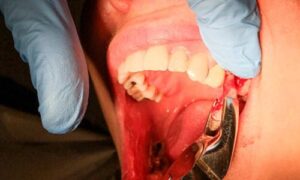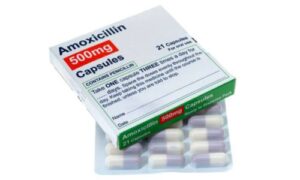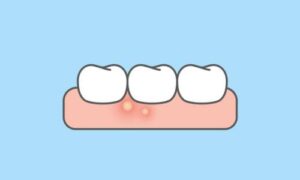Teeth whitening is a cosmetic dental procedure that involves the removal of stains and discoloration from the surface of the teeth, resulting in a brighter, more attractive smile. While many different types of teeth whitening treatments are available, they all work similarly by using a bleaching agent to lighten the color of the teeth. If you are considering a teeth whitening procedure, it’s essential to understand what to expect before, during, and after the treatment. This article will cover everything you need about teeth whitening procedures, including the different treatments, the risks and benefits, and what you can expect during your appointment.
Types of Teeth Whitening Treatments
Several teeth whitening treatments are available, ranging from over-the-counter products to professional in-office treatments. Here are some of the most common types of teeth whitening treatments:
Over-the-Counter Whitening Products
Over-the-counter whitening products, such as toothpaste, whitening strips, and whitening gels, are readily available at most drugstores and supermarkets. These products are affordable and easy to use but may not be as effective as professional treatments.
At-Home Whitening Kits
At-home whitening kits typically include a custom-fitted tray and a bleaching gel applied to the teeth for a specified period. These kits are more effective than over-the-counter products but can take longer to achieve noticeable results.
In-Office Whitening Treatments
Professional in-office teeth whitening treatments are the most effective and fastest way to achieve a whiter smile. During an in-office treatment, a dental professional will apply a bleaching agent to the teeth and use a special light to activate the whitening process. In-office treatments can typically be completed in one appointment, and results can be seen immediately.
Risks and Benefits of Teeth Whitening
While teeth whitening is generally considered a safe and effective procedure, there are some risks and potential side effects to be aware of. Here are some of the most common risks and benefits of teeth whitening:
Risks
- Tooth sensitivity: Some people may experience temporary tooth sensitivity after a whitening treatment.
- Gum irritation: Whitening products can irritate the gums if they come into contact with them.
- Enamel damage: Overuse of whitening products can damage the enamel on the teeth, making them more susceptible to cavities and decay.
Benefits
Here are the benefits of teeth whitening explained in detail with separate headings:
-
- Boosts Confidence:
Teeth whitening can improve the appearance of your teeth, making them look brighter and more attractive. Studies have shown that people with radiant smiles are perceived as more friendly, beautiful, and successful. A bright, white smile can boost your self-esteem and make you feel more confident in social situations. A bright, white smile can boost your self-esteem and make you feel more confident in social situations.
- Enhances Appearance:
Teeth whitening can remove stains and discoloration caused by smoking, aging, and certain foods and drinks. This can enhance the appearance of your teeth and make them look healthier and more youthful. Whiter teeth can also make your lips and gums look more beneficial and improve the overall aesthetics of your smile.
- Improves Oral Health:
Teeth whitening can help remove plaque and bacteria from your teeth, reducing the risk of gum disease, cavities, and other dental problems. Regular teeth whitening treatments can motivate you to take better care of your teeth and gums, leading to better oral hygiene and overall dental health.
- Boosts Job Prospects:
A brighter, whiter smile can make a positive impression on potential employers and clients, particularly in industries where appearance is essential, such as sales or customer service. A confident smile can make you appear more approachable and trustworthy, increasing your chances of success in the workplace.
- Reduces Risk of Dental Problems:
Teeth whitening can remove surface stains and discoloration, which can help prevent tooth decay and other dental problems. This is because when teeth are whitened, the enamel becomes more robust and less susceptible to damage from acid, bacteria, and other harmful substances.
- Improves Mental Health:
Studies have shown that people with radiant smiles are happier and more confident, leading to better mental health and well-being. A brighter, whiter smile can improve mood and reduce stress and anxiety. A brighter, whiter smile can improve mood and reduce stress and anxiety. A confident smile can also help you feel more comfortable in social situations, leading to better relationships and a more fulfilling life.
What to Expect During Your Appointment
If you decide to undergo a teeth whitening procedure, here’s what you can expect during your appointment:
Consultation
Before the whitening treatment begins, you will consult a dental professional to discuss your goals and determine the best treatment option.
Pre-Treatment
The dental professional will clean your teeth to remove any debris or plaque that may interfere with the whitening process. They may also take before-and-after photos to track your progress.
Whitening Treatment
The dental professional will apply a whitening gel to your teeth and use a special light to activate the bleaching agent. The treatment may take anywhere from 30 minutes to an hour, depending on the type of treatment.
Post-Treatment
After the treatment, you may experience some tooth sensitivity and gum irritation. Your dental professional may recommend an over-the-counter pain reliever to help alleviate any discomfort. They may also recommend avoiding certain foods and drinks, such as coffee and red wine, for a few days after the treatment to prevent staining.
Aftercare
Aftercare is an essential aspect of any teeth whitening procedure, as it helps to ensure that your results last as long as possible. Here are some tips for taking care of your teeth after a whitening treatment:
- Brush and floss regularly: Maintaining good oral hygiene is essential for keeping your teeth healthy and preventing staining. Brush your teeth at least twice daily with fluoride toothpaste and floss daily to remove plaque and food particles that can cause discoloration.
- Use a soft-bristled toothbrush: After a teeth whitening treatment, your teeth may be more sensitive than usual, so it’s essential to use a soft-bristled toothbrush to avoid causing further irritation.
- Avoid staining foods and drinks: Foods and beverages high in color, such as coffee, tea, red wine, and berries, can stain your teeth. Avoid consuming these items for at least 48 hours after your whitening treatment.
- Use a straw: When drinking beverages that may stain your teeth, such as coffee or soda, use a straw to minimize contact with your teeth.
- Rinse your mouth after eating: After consuming staining foods or drinks, rinse your mouth with water to help prevent staining.
- Use a desensitizing gel: If you experience tooth sensitivity after your whitening treatment, your dentist may recommend using a desensitizing gel to help reduce discomfort.
- Have touch-up treatments as needed: Depending on the whitening treatment you received, touch-up treatments may be necessary to maintain your results. Talk to your dentist about when you should schedule your next appointment.
By following these tips and taking good care of your teeth after your whitening treatment, you can help ensure that your results last as long as possible.
FAQs
Are teeth whitening safe?
Yes, teeth whitening is generally considered a safe procedure by a dental professional.
How long do teeth whitening results last?
The length of time teeth whitening results last can vary depending on the type of treatment and how well you take care of your teeth afterward. In-office treatments can last up to a year, while at-home therapies may need to be repeated more frequently.
Will teeth whitening cause sensitivity?
Some people may experience temporary tooth sensitivity after a teeth whitening treatment, but this usually disappears within a few days.
Can teeth whitening damage my enamel?
Overusing teeth whitening products can damage the enamel on your teeth, but teeth whitening is a safe and effective procedure when done correctly.
How can I maintain my teeth whitening results?
To maintain your teeth whitening results, it’s essential to practice good oral hygiene, avoid staining foods and drinks, and have touch-up treatments as needed.
Conclusion
Teeth whitening is a popular cosmetic dental procedure that can help improve the appearance of your smile. Whether you choose an over-the-counter product or a professional in-office treatment, it’s essential to understand what to expect before, during, and after the procedure. By following the tips and guidelines outlined in this article, you can achieve a brighter, more attractive smile that you can be proud of.














